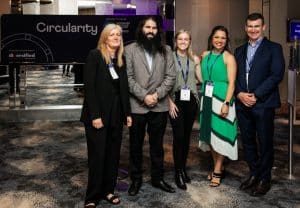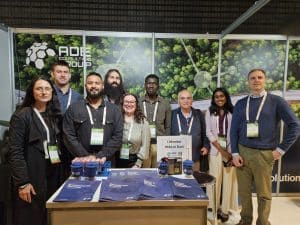We sat down with Travis Ng, an Environmental Consultant from our Sydney team, in a Q&A style interview to speak about his recent experience traveling to New Zealand for the Environmental Institute of Australia and New Zealand’s Annual Conference (EIANZ). Here’s what Travis had to say.
Tell us a bit about yourself and your role at ADE.
I’m Travis, and currently an Environmental Consultant at ADE. I work in a reporting, fieldwork delivery, and project management support capacity to help provide our clients with recommendations on contaminated land and waste management.
Who are EIANZ and what kind of involvement have you had with them before?
EIANZ stands for ‘Environment Institute of Australia and New Zealand’. They’re a non-profit professional association dedicated to promoting ethics and best practice among various kinds of environmental practitioners. This can include consultants, academics, regulators, corporate environmental managers, and many more. EIANZ hosts seminars, webinars, speakers, and networking events, as well as a robust mentoring program that is specifically targeted at students and early career professionals (SEC).
I’ve been a member of EIANZ since 2022, when I first took part in their mentoring programme, and have continued to develop my involvement, regularly attending events and increasing my participation. I’ve since joined the EIANZ NSW Division Committee as a General Member, and I also act as the NSW Division Representative to the institute-wide SEC Committee.


Can you tell us a little bit about the grant application process?
The grant application process was competitive, but straightforward. We had to answer a few short questions about why we were interested, what we hoped to gain, and our previous involvement in EIANZ. So, get started!
What was ADE’s involvement in supporting your attendance at the conference?
ADE generously offered to support flights, accommodation, and board throughout the three-day conference.
What specific workshops or sessions at the conference excited you most and why?
I was really intrigued by a couple of international contaminated land case studies, specifically the ones from the US and New Zealand. The US case study caught my eye not only because it was close to my hometown but also because it unveiled the connection between contaminated land and social issues. On the other hand, the New Zealand case study was fascinating as it tackled the challenges of dealing with an unofficial dumpsite that had begun collapsing into the sea.
However, what I found most enlightening were the sessions on Indigenous relationships with the land. These discussions emphasised the significance of involving Indigenous communities in environmental work and building personal connections with Indigenous Elders and leaders. They stressed the importance of nurturing these relationships well before diving into any specific projects, with one of the Elders stating:
“If the first time you come in is with a piece of paper in hand, even if you’re just seeking input, you’re already starting off on the wrong foot.”
In other words, we can’t afford to ignore Indigenous communities just to suddenly show up at their door when we need help – consultancies and other organisations need to be proactive in kickstarting a relationship.


How do you plan to apply the knowledge you gained at the conference to your professional career and work at ADE?
I plan to integrate the knowledge and insights gained at the conference into our environmental consulting processes. This includes the continued promotion of inclusive practices, and considering the work we do in the context of our relationships with Indigenous people and country from an ethical, non-financial point of view.
I intend to share this knowledge with my colleagues, and I hope to contribute to an environment where these issues are at the forefront of our minds. I also hope to get involved with and assist in ADE’s initiatives focusing on Indigenous involvement, such as our ‘Roadmap to Increasing Indigenous Participation’.
How did ADE’s support for your professional development impact your overall experience as an employee?
ADE’s support reflects their commitment to the professional growth of their employees and demonstrates their drive to be an employer of choice. I look forward to ADE continuing this commitment by supporting individual professional development opportunities for employees at all levels.
What advice would you give to your peers who might be interested in applying for similar grants or attending conferences for professional development?
I highly encourage my peers to apply for similar grants and/or to attend conferences and symposiums such as EIANZ Annual Conference or Ecoforum. It was an incredible experience to speak with so many like-minded professionals.
When it comes to a fast-paced and ever-changing field such as the environment, it’s worthwhile to keep yourself updated. Conferences and events like the above are an invaluable way for early career professionals to learn from past experiences, understand the present condition, and plan for the future with our peers who are just starting out as well.






